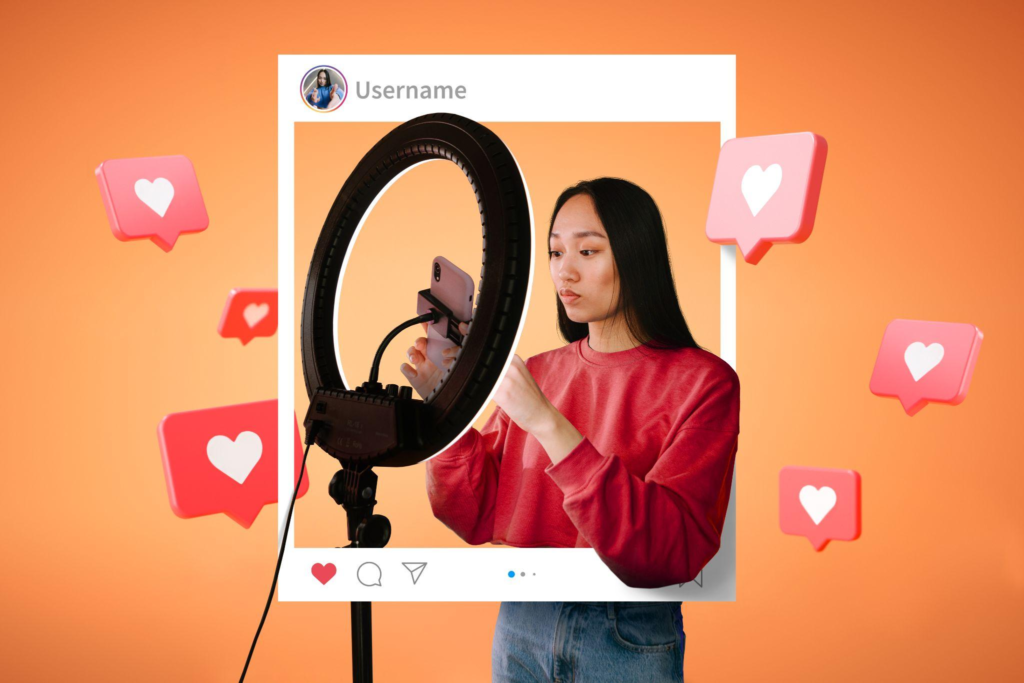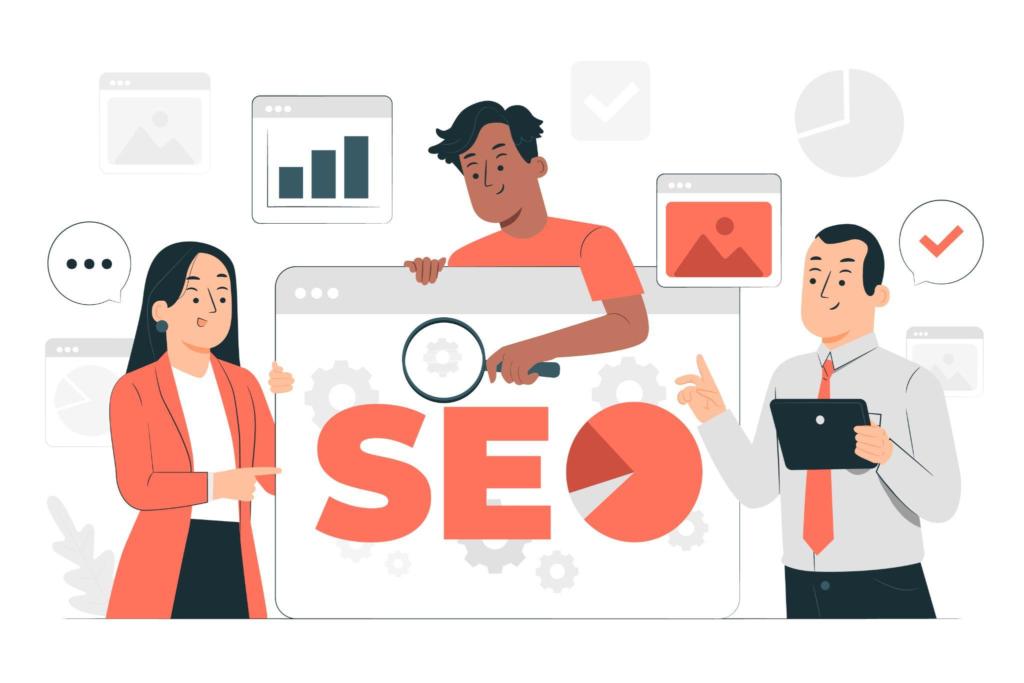Fashion and apparel are industries that exist in a perpetual state of flux. Staying ahead of the competition is not just a fleeting objective; it’s a constant challenge that requires innovation and adaptability. To succeed in this dynamic and highly competitive sector, fashion and apparel brands must not only create high-quality products but also implement effective marketing strategies that capture the essence of their brand and deeply resonate with their target audience.
In recent years, one marketing approach has gained significant prominence as a sustainable and impactful method for connecting with consumers and building long-lasting brand loyalty: organic marketing. This blog will delve into the intricacies of organic marketing strategies tailored specifically for fashion and apparel brands. It aims to explore how these brands can leverage the power of organic marketing to achieve not just short-term success but long-term sustainability in a rapidly evolving industry.
The Dynamics of the Fashion and Apparel Industry
The fashion and apparel industry is a constantly evolving arena, driven by shifting trends, consumer preferences, and global events. Fashion brands must navigate this complex landscape with finesse to remain relevant and competitive. The industry’s dynamism is rooted in a few key factors:
Consumer Expectations: Consumers today expect more than just clothing; they desire a deeper connection with brands. They want to align with brands that share their values and offer a lifestyle, a story, and a sense of belonging.
Fast Fashion vs. Sustainability: The rise of fast fashion has provided consumers with affordable and rapidly changing clothing options. However, there’s an increasing awareness of the environmental and ethical issues associated with fast fashion, leading many consumers to prioritize sustainability and ethical practices when making purchase decisions.
Digital Transformation: The digital age has fundamentally transformed the way people discover and shop for fashion. E-commerce, social media, and online marketplaces have created new channels for brands to reach consumers.
Given these dynamics, it’s crucial for fashion and apparel brands to not only create desirable products but also connect with consumers on a deeper level. Organic marketing is a response to this need, offering a holistic and sustainable approach to brand building.
The Essence of Organic Marketing

Organic marketing, often referred to as inbound marketing, is a customer-centric approach that focuses on creating valuable and engaging content to attract, engage, and retain customers. Unlike traditional advertising, which interrupts consumers with promotional messages, organic marketing seeks to provide content and experiences that customers actively seek out and value. It’s a strategy built on the belief that consumers are more likely to connect with brands that offer relevant content and experiences.
Organic marketing is characterized by several fundamental principles:
Value-Centric: It revolves around creating content that genuinely adds value to the lives of consumers. Whether it’s providing fashion tips, style guides, or sustainability insights, the content is meant to educate, inspire, or entertain.
Customer-Centric: It’s highly focused on understanding the customer’s needs and preferences. Brands that excel in organic marketing invest time in audience research, personas, and customer feedback to ensure that their content is tailored to their audience.
Relationship Building: Organic marketing places a strong emphasis on building and nurturing relationships with customers. It’s not about making one-time sales but about creating loyal brand advocates who keep coming back.
Multi-Channel Approach: It utilizes various channels such as social media, email marketing, content marketing, and SEO to reach and engage the target audience.
Now, let’s explore how organic marketing strategies can empower fashion and apparel brands to thrive in the challenging fashion landscape –
- Building a Strong Brand Identity

In the realm of fashion, brand identity is everything. It’s the unique combination of aesthetics, values, and messaging that distinguishes one brand from another. Organic marketing is instrumental in shaping and conveying this identity.
Brands can use organic marketing to tell their story, showcase their design philosophy, and highlight their values. They can create content that delves into the inspiration behind their collections, the craftsmanship that goes into their products, and the ethical practices they uphold. This helps consumers understand not just what a brand sells but who they are, making it easier for consumers to connect with the brand on a personal level.
- Storytelling through Content
Storytelling is a potent tool in the world of fashion. It allows brands to create an emotional connection with their audience. Organic marketing in fashion is about weaving compelling narratives around products and collections. It’s about going beyond just showcasing the clothes and delving into the journey, the craftsmanship, and the people behind the brand.
Content takes many forms, from blog posts that dive deep into the latest trends and style guides to videos that take viewers behind the scenes of a fashion shoot or introduce them to the artisans who craft the products. The power of storytelling lies in its ability to captivate the audience and make them feel like an integral part of the brand’s journey.
- Utilizing Social Media

In the digital age, social media has become an indispensable platform for fashion brands. Organic marketing strategies are particularly effective on these platforms, as they allow brands to visually showcase their products and engage with consumers in real-time.
For fashion and apparel brands, platforms like Instagram, Pinterest, and TikTok are particularly relevant. These visually oriented platforms provide the ideal canvas for showcasing products and sharing visually appealing content. Whether it’s showcasing the latest collections, conducting live Q&A sessions with designers, or running user-generated content campaigns, social media enables brands to foster a sense of community and engagement.
4. Influencer Marketing

In the realm of fashion, influencer marketing is a game-changer. Fashion influencers, whether they are fashion bloggers, Instagram fashionistas, or YouTube style gurus, have dedicated followers who trust their opinions and style.
Fashion brands can leverage the power of influencer marketing by partnering with the right influencers who align with their brand identity. These influencers can authentically showcase the brand’s products in their daily lives, helping to reach a broader and more engaged audience.
However, the key is authenticity. The influencer must genuinely resonate with the brand’s style and values. Overly promotional collaborations can backfire, alienating the very audience they aim to attract.
5. Email Marketing

Email marketing, often considered the unsung hero of digital marketing, has consistently proven itself as a robust tool for fashion and apparel brands. It provides a unique platform for direct engagement with the audience, fostering a sense of exclusivity, and enabling brands to share tailored content that resonates deeply with their customers.
In the fashion and apparel industry, where trends change at the drop of a hat, and consumer tastes are as diverse as the options on the rack, email marketing offers a level of personalization and direct communication that is hard to match.
Sharing Exclusive Content
One of the cornerstones of successful email marketing for fashion brands is the ability to share exclusive content. This might include behind-the-scenes glimpses of upcoming collections, interviews with designers, or insider insights into the fashion world. By providing this exclusive content, fashion brands create a sense of intimacy and community with their customers.
Exclusive content in emails serves to make customers feel special and valued. It offers them something they can’t get through other channels, reinforcing their loyalty to the brand. It’s like inviting them into an inner circle of fashion enthusiasts, and this sense of belonging can be a powerful driver for customer retention.
Offering Promotions
Fashion and apparel brands often leverage email marketing to offer promotions and discounts. While promotions can be an effective short-term strategy to boost sales, they also play a significant role in customer retention. A well-timed and targeted discount can re-engage previous customers who may have been on the fence about making a purchase.
The key here is to strike a balance between offering discounts and maintaining the brand’s perceived value. Overuse of promotions can lead to customers waiting for sales and devaluing the brand’s products. However, judiciously timed promotions can create excitement and reinforce the idea that subscribers are privy to special offers.
Keeping Customers Informed
The fashion industry is marked by its dynamism. New collections, trends, and seasonal changes occur frequently. Fashion brands can utilize email marketing to keep their customers informed about these developments. Whether it’s the launch of a new collection, a change in seasonal items, or the arrival of limited-edition pieces, email campaigns are an ideal way to ensure that customers are up-to-date with the brand’s offerings.
This not only serves the purpose of informing but also nudges customers towards making a purchase. When customers are aware of the latest offerings, they are more likely to visit the website or physical store to explore and potentially make a purchase. The goal is to make sure that the brand remains top-of-mind whenever a customer thinks about shopping for fashion items.
The Personalization Factor
One of the most compelling aspects of email marketing is its ability to be highly personalized. Fashion and apparel brands can collect data on their customers’ preferences, purchase history, and browsing behavior to create tailored emails. For instance, if a customer frequently purchases men’s clothing, they can receive emails focused on new men’s arrivals. If a customer is a fan of sustainable fashion, emails can highlight eco-friendly collections.
The personalization extends beyond just product recommendations. Brands can personalize the subject lines, email content, and even the timing of email sends to match individual preferences. For example, a customer who typically opens emails in the evening can receive emails later in the day. Personalization creates a sense of being understood and valued, making customers more likely to engage with emails and take the desired actions.
Segmentation and Targeting
Successful email marketing campaigns for fashion brands often involve segmentation and targeting. Segmentation means dividing the email list into smaller groups based on specific criteria. For example, segmentation could be based on geographic location, gender, past purchase behavior, or engagement level. By segmenting the audience, brands can send highly relevant content to each group.
For instance, a fashion brand might segment its email list into male and female customers. This allows them to send gender-specific product recommendations and promotions, increasing the likelihood of conversion. Additionally, they might segment by location to provide information about in-store events or special offers at the nearest physical store.
Crafting Engaging Content
The success of email marketing for fashion and apparel brands hinges on crafting engaging content that captivates recipients. Visual elements, such as high-quality images of products, are paramount. Fashion is inherently visual, and emails should reflect that. Whether it’s showcasing the latest collection, highlighting product details, or displaying outfits styled with the brand’s pieces, visuals are key.
Emails should also include compelling copy that tells a story, shares fashion tips, or provides insights into the brand’s values and mission. Well-crafted content enhances the overall email experience and keeps recipients engaged.
The Power of Timing
Email marketing is not just about what you send but when you send it. Timing plays a crucial role in the success of email campaigns. Sending emails at the right time can significantly impact open rates and click-through rates.
For fashion brands, it’s essential to consider factors like the time of day and day of the week. For instance, sending emails announcing a weekend sale on a Friday or Saturday morning can create a sense of urgency and excitement. On the other hand, sending a newsletter with style tips and outfit ideas on a Tuesday morning might align with customers planning their weekly wardrobe.
Moreover, fashion brands often benefit from sending emails related to upcoming events, such as seasonal sales, new collection launches, or holiday promotions. Timely communication not only keeps customers informed but also capitalizes on their readiness to engage with fashion-related content.
4. Search Engine Optimization (SEO)

In the digital age, enhancing online visibility is imperative for fashion and apparel brands. A potent tool in achieving this is search engine optimization (SEO), which ensures that a brand’s website and content are easily discoverable by popular search engines like Google. SEO is instrumental in helping fashion brands rise in the ranks of search engine results, making them more accessible to potential customers.
SEO primarily revolves around optimizing a brand’s online presence in various ways:
Keyword Optimization: Brands should meticulously research and select relevant keywords that align with their products and the phrases potential customers might use in their searches. By strategically incorporating these keywords into their website’s content, meta descriptions, and headers, fashion brands increase the likelihood of appearing in search results related to their niche.
High-Quality Content: The quality of content is a paramount factor in SEO. Fashion and apparel brands must create informative, engaging, and original content that adds value to the customer’s online experience. This not only helps in attracting more traffic but also ensures that visitors spend more time on the website, signaling its relevance to search engines.
User-Friendly Interface: The website’s design and usability play a crucial role in SEO. Brands should strive to maintain a user-friendly interface that enhances the overall user experience. A well-structured and easily navigable site encourages visitors to stay longer and explore the brand’s offerings, which, in turn, positively impacts search rankings.
5. Sustainable and Ethical Practices
In recent years, consumers have become more conscious of the ethical and environmental impact of their fashion choices. Fashion and apparel brands can appeal to this growing segment of consumers by adopting sustainable and ethical practices. This includes using eco-friendly materials, reducing waste, and ensuring fair labor practices in their supply chains. Brands that prioritize sustainability can use it as a powerful marketing tool, attracting customers who value responsible consumption.
6. User-Generated Content
User-generated content (UGC) is a potent tool for fashion brands. It involves showcasing content created by customers, such as photos and reviews, on the brand’s website or social media. UGC not only builds trust but also helps potential customers see how the products look in real life. Encouraging customers to share their experiences and tag the brand in their posts can lead to a wealth of authentic and engaging content.
7. Collaborations and Partnerships

Collaborations and partnerships with other brands, designers, or organizations can provide fashion brands with fresh perspectives and access to new audiences. These collaborations can be featured prominently in marketing efforts, creating buzz and anticipation among consumers. When well-executed, collaborations can be a win-win for all parties involved.
- Engaging with the Community
Fashion and apparel brands should actively engage with their community, both online and offline. Hosting events, workshops, and pop-up shops can help build a sense of community and foster stronger connections with customers. Engaging with the community also allows brands to gather valuable feedback and insights to refine their products and marketing strategies.
9. Analytics and Data-Driven Decisions

To ensure the success of their organic marketing efforts, fashion and apparel brands should leverage analytics and data-driven insights. This includes monitoring website traffic, social media engagement, email campaign performance, and more. By analyzing this data, brands can make informed decisions and continually refine their strategies for better results.
- Consistency and Patience
Organic marketing is a long-term strategy that requires consistency and patience. Building a loyal customer base and establishing a brand’s presence takes time. Fashion and apparel brands should commit to their strategies and continually adapt based on feedback and changing trends.
Conclusion
Organic marketing strategies have become increasingly vital for fashion and apparel brands seeking to connect with consumers on a deeper level and build lasting brand loyalty. In a world inundated with advertising, consumers appreciate brands that offer value, tell compelling stories, and align with their values.
By focusing on elements like storytelling, social media, influencer marketing, email campaigns, SEO, and sustainability, fashion and apparel brands can carve out their unique space in a highly competitive industry. These strategies not only attract customers but also help retain them, creating a foundation for long-term success.
In the ever-evolving world of fashion, staying true to one’s brand identity and consistently delivering valuable and engaging content will set brands apart. Organic marketing is not just a trend; it’s a commitment to building lasting connections with the audience, and it’s a strategy that pays off in the long run. Fashion and apparel brands that embrace these principles can thrive in an increasingly competitive and conscious market.


